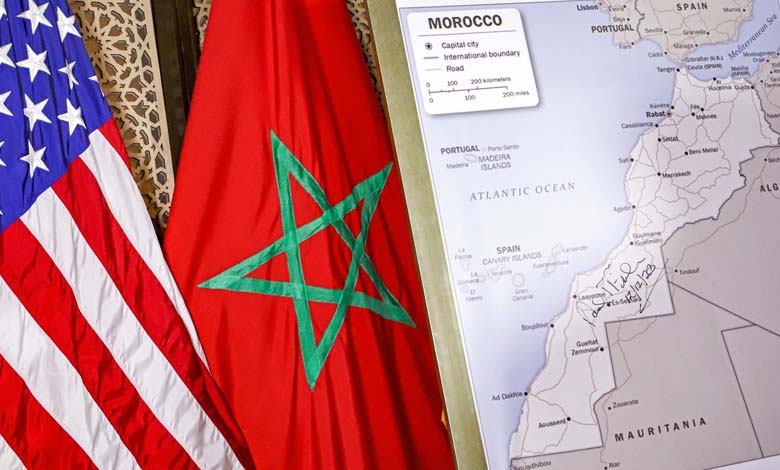U.S. Support for Moroccan Sovereignty over the Sahara: A Consistent Strategic Choice

Washington’s commitment to Moroccan sovereignty over the Sahara and to the autonomy initiative is not a temporary or circumstantial policy — it is a clear and consistent strategic choice reflecting the United States’ dedication to regional stability and justice.
On Tuesday, the administration of President Donald Trump reaffirmed its unwavering support for Morocco’s sovereignty over the Sahara, stating that negotiations to resolve the artificial conflict should take place solely on the basis of the Moroccan autonomy plan, which grants the region self-governance under Rabat’s sovereignty. This reaffirmation highlights the depth of strategic relations between the two nations.
-
Larcher’s Visit to the Moroccan Sahara Reflects France’s Interest in Strengthening Cooperation with Rabat
-
Morocco Expands Awareness of the Moroccan Sahara in Central America
According to a statement by State Department spokesperson Tami Bruce, Secretary Marco Rubio informed Moroccan Foreign Minister Nasser Bourita during a meeting in Washington that President Trump’s 2020 decision to recognize Morocco’s sovereignty over the region remains official U.S. policy.
Bruce stated, “The Secretary reiterated President Trump’s call for all parties to engage without delay in discussions using the Moroccan autonomy plan as the only framework for negotiating a mutually acceptable solution.”
-
French Business Leaders Explore Investment Opportunities in the Moroccan Sahara
-
“The Moroccan Sahara”: Macron supports Rabat’s plan
The U.S. stance on Moroccan sovereignty and the autonomy initiative is a strategic and enduring position, regardless of changes in administration. It reflects a solid and principled approach to a long-standing, artificial conflict.
This position also demonstrates Washington’s desire to strengthen cooperation with Morocco across several sectors, including security and trade, while supporting a pragmatic solution that reinforces the Kingdom’s sovereignty over its southern provinces.
-
France Stimulates Its Companies with Financial Support to Invest in the Moroccan Sahara
-
Biden Proposes Diplomat Supportive of Moroccan Sahara as Ambassador to Algeria
Furthermore, the U.S. support sends a strong message to Algeria, which continues to back the Polisario Front. This should prompt the Algerian government to reconsider its rigid and unproductive approach and adopt a more pragmatic one that supports peace and development in North Africa.
It is worth noting that this policy transcends party lines in the U.S. — both Republican and Democratic administrations, including that of President Joe Biden, have expressed firm support for Morocco’s legitimate sovereignty over the Sahara.
-
Bourita: The Moroccan Sahara issue is no longer on the agenda of the African Union
-
Calls urging Britain to end its hesitation in recognizing the Moroccan Sahara
The dispute, which dates back to 1975, remains frozen and pits Morocco — the rightful sovereign — against the Polisario Front, backed by Algeria. According to Bruce, Rubio reaffirmed that Morocco’s 2007 proposal is “serious, credible, and realistic,” and “the only basis for a just and lasting resolution of the conflict.”
President Trump’s recognition of Moroccan sovereignty over the Sahara at the end of his first term, in exchange for Morocco normalizing ties with Israel, paved the way for broader international recognition of Rabat’s position. In July last year, France followed suit with a similar declaration.
-
The Non-Aligned Movement Triumphs for Realism as a Solution to End the Conflict in Moroccan Sahara
-
Washington exposes Algeria’s falsification of its position on the Moroccan Sahara
Spain — the former colonial power in the region — also announced in 2022 its support for Rabat’s autonomy plan.
The UN-led process to resolve the conflict has stalled, with Morocco maintaining that autonomy is the only realistic basis for negotiation. In contrast, the Polisario and Algeria continue to insist on a referendum — a rigid stance that perpetuates deadlock.
Algeria has declined to participate in talks proposed by the UN envoy to Moroccan Sahara, instead insisting on a referendum including the option of independence — a position that remains isolated and lacks international support, serving only to inflame regional tensions.












